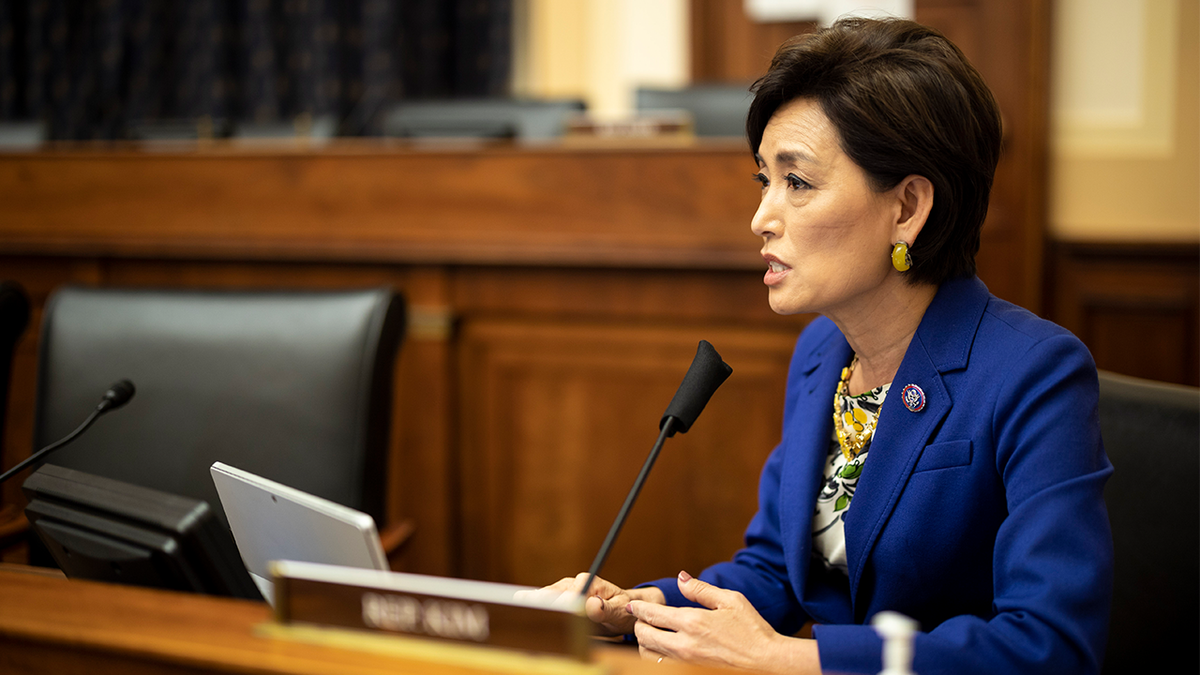NEWYou can now listen to Fox News articles!
FIRST ON FOX: A House Republican representing part of Southern California will oppose President Donald Trump’s “big, beautiful bill” if it returns to her chamber without the House’s original language on Medicaid, a source familiar with her thinking told Fox News Digital.
Rep. Young Kim, R-Calif., is one of several moderates who are uneasy on Saturday after the Senate released updated text of the massive bill advancing Trump’s agenda on tax, immigration, defense, energy, and the national debt.
Two other sources told Fox News Digital that as many as 20 to 30 moderate Republicans are reaching out to Speaker Mike Johnson, R-La., with serious concerns about the Senate’s bill.
The source familiar with Kim’s thinking said, “As she’s said throughout this process, ‘I will continue to make clear that a budget resolution that does not protect vital Medicaid services for the most vulnerable, provide tax relief for small businesses, and address the cap on state and local tax (SALT) deductions will not receive my vote.'”
HOUSE CONSERVATIVES GO TO WAR WITH SENATE OVER TRUMP’S ‘BIG, BEAUTIFUL BILL’
The Senate released the nearly 1,000-page bill minutes before midnight on Friday night.
It makes some notable modifications to the House’s version of the bill – which passed that chamber by just one vote in May – particularly on Medicaid and green energy credits.
Among their issues is the difference in provider tax rates and state-directed payments, both of which states use to help fund their share of Medicaid costs.

Whereas the House bill called for freezing provider taxes at their current rates and blocking new ones from being implemented, the Senate’s bill went a step further – forcing states to gradually phase down their provider tax rates to 3.5%, if they adopted the Affordable Care Act’s (ACA) Medicaid expansion.
That would include 40 states and Washington, D.C. The Senate’s most recent bill text shows that phase-down happening between 2028 and 2032.
Sixteen House GOP moderates wrote a letter to congressional leaders sounding the alarm on those Medicaid provisions earlier this week.

They said it “undermines the balanced approach taken to craft the Medicaid provisions in H.R. 1—particularly regarding provider taxes and state-directed payments.”
“The Senate version treats expansion and non-expansion states unfairly, fails to preserve existing state programs, and imposes stricter limits that do not give hospitals sufficient time to adjust to new budgetary constraints or to identify alternative funding sources,” the letter read.
To offset Senate Republicans’ concerns about their chamber’s proposed limits on state-directed payments and provider tax rates, the Senate Finance Committee included a $25 billion rural hospital fund in their legislation.
It was enough to sway Sen. Josh Hawley, R-Mo., who told reporters on Saturday that he would support the bill after expressing earlier concern about the Medicaid provisions’ impact on rural hospitals.
But in the House, sources are signaling to Fox News Digital that moderate Republicans could still need convincing if the bill passes the Senate this weekend.
TOP TRUMP HEALTH OFFICIAL SLAMS DEMOCRATS FOR ‘MISLEADING’ CLAIMS ABOUT MEDICAID REFORM

It could pose problems for House GOP leaders given their thin three-vote majority, though it’s worth noting that the legislation could still change before it reaches the lower chamber.
But one senior House GOP aide told Fox News Digital they believe the moderates will ultimately fall in line, even if the text doesn’t change.
“Moderate Republicans can plead and beg with House leadership all they want – the reforms to Medicaid made in the Senate are here to stay,” the senior aide said. “And ultimately, these lawmakers will roll over and vote for the ‘Big, Beautiful Bill’ because the wrath of President Trump is far worse than a lower provider tax.”
Fox News Digital reached out to Speaker Mike Johnson’s office for comment.
For his part, Johnson, R-La., has publicly urged the Senate on multiple occasions to change the bill as little as possible – given the fragile unity that must be struck in the House to pass it.
Read the full article here

















